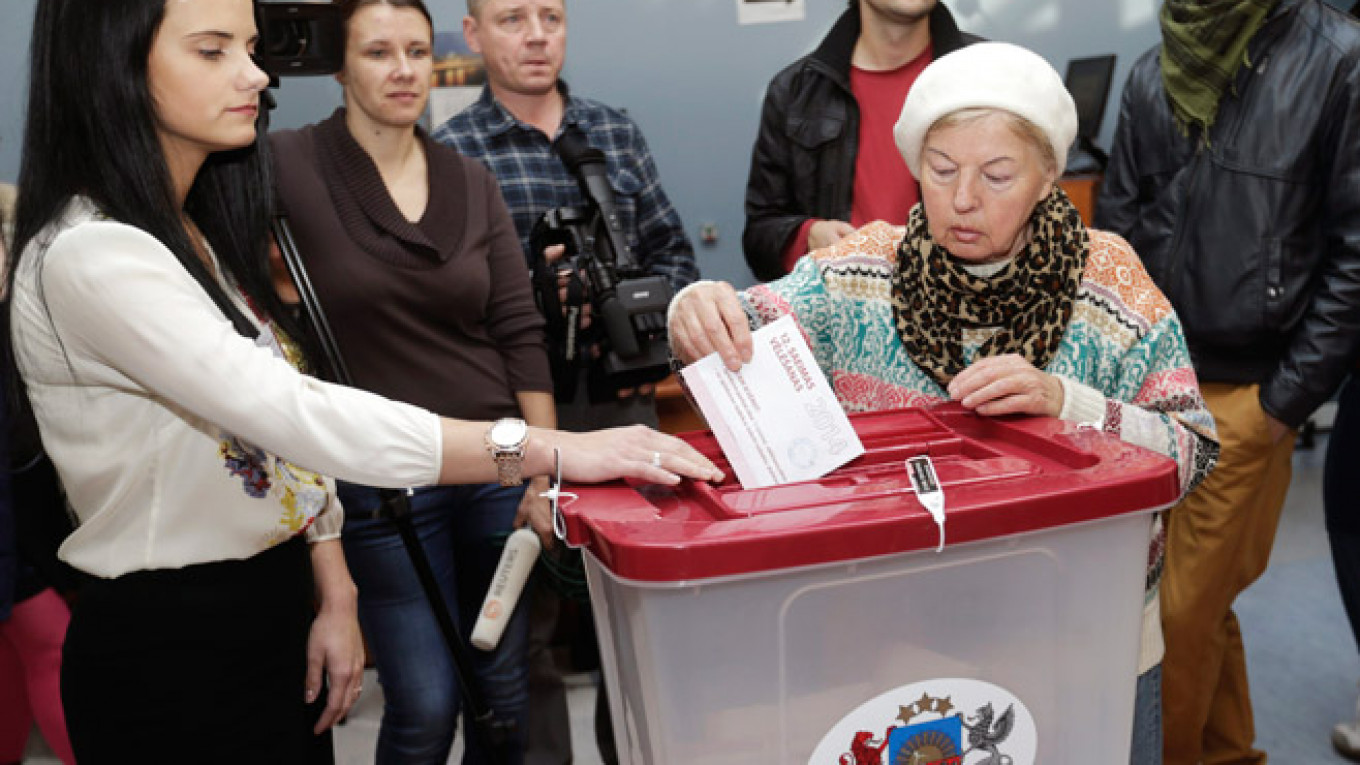Latvia's ruling coalition will remain in power after winning a majority of seats in Saturday's parliamentary elections, a political exercise dominated by debates about the country's ties with Russia, and with its own Russian-speaking population.
Opposition party Harmony Center, popular among the country's large Russian-speaking population, received 23.3 percent of the votes, earning 25 seats in the 100-seat parliament.
The results of Saturday's ballot — to which 58.8 percent of eligible voters turned out — represent a six-seat loss for Harmony Center, which is headed by Nils Usakovs, the ethnic Russian mayor of Riga.
The center-right coalition led by Prime Minister Laimdota Straujuma's Unity party, which includes the National Alliance and the Union of Greens and Farmers, will hold 61 seats in the legislative body after receiving 57.9 percent of the vote. The coalition had held 57 seats since the last parliamentary elections in 2011.
Popular support for Harmony Center, which has never been part of Latvia's ruling coalition, seems to have eroded since the outbreak of the crisis in Ukraine. Latvia has been one of the most vocal supporters of the European Union's sanctions against Russia, despite its extensive trade with the country.
"Harmony Center is still the biggest party, but it is the biggest loser in these elections," Edgars Engizers, a lecturer at the Baltic International Academy who serves as an assistant for Unity deputy Andrejs Judins, told The Moscow Times in a telephone interview from Riga on Sunday. "The gap between Harmony Center and Unity [a ruling coalition party] has shrunk."
Harmony Center has fostered ties with United Russia, brewing popular distrust among ethnic Latvians who think the party could pave the way to Kremlin influence in the country's political system. Usakovs' ambiguous stance on issues of importance to ethnic Latvians has also been badly received among the general population.
Usakovs has refused to condemn Russia's annexation of Crimea and supported Latvia's 2012 referendum on making Russian the country's second official language, an initiative that many ethnic Latvians interpreted as an affront.
Ethnic Russians account for 27 percent of Latvia's population of 2.07 million, according to the country's last census, in 2011. Linguistic tensions and debates about how to manage its multiethnic population and its Soviet legacy have dominated Latvia's domestic politics since the collapse of the Soviet Union.
Contact the author at [email protected]
A Message from The Moscow Times:
Dear readers,
We are facing unprecedented challenges. Russia's Prosecutor General's Office has designated The Moscow Times as an "undesirable" organization, criminalizing our work and putting our staff at risk of prosecution. This follows our earlier unjust labeling as a "foreign agent."
These actions are direct attempts to silence independent journalism in Russia. The authorities claim our work "discredits the decisions of the Russian leadership." We see things differently: we strive to provide accurate, unbiased reporting on Russia.
We, the journalists of The Moscow Times, refuse to be silenced. But to continue our work, we need your help.
Your support, no matter how small, makes a world of difference. If you can, please support us monthly starting from just $2. It's quick to set up, and every contribution makes a significant impact.
By supporting The Moscow Times, you're defending open, independent journalism in the face of repression. Thank you for standing with us.
Remind me later.






